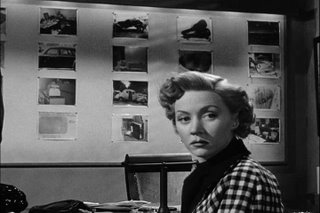ecevit was an interesting figure. i used to prefer him to demirel. when i was a little boy, sitting on the floor in the living room and watching the news on the black and white tv with my parents, every night ecevit and demirel would come out and put on something not so different than a laurel and hardy show-at least in my (probably) six years old eyes and imagination.
perhaps because he was distinctly more attractive (thin, young, energetic

with dark black hair combed back with a very symbolic moustache-[see right]) than the corporate-looking and well-fed demirel (though weight was not an issue with laurel), i used to prefer ecevit. or perhaps i was already a social democrat populist.
ecevit was a social democrat or, what one would call, a left populist leader. he was, in many senses of the analogy, the lula of turkey. not only he came to power through a leftist platform both in the seventies (and then in the post-coup nineties), but also, like lula in brazil, he capitulated (in his post-coup career) to all the demands of the imf and the world bank.
let me be clear. i am not using the adjective "left populist," like many do, in a pejorative manner. in the seventies, ecevit did bring together a large electoral coalition of progressive forces in turkey. such a leftist and winning electoral coalition has never been produced until then and has not yet been produced since then. in this period, his economic policies were constituted by a combination of social programs and an advanced level of "import-substitution-industrialization" (i.e., the protection of the local industries with the intention of gradually creating backward linkages). of course, an important class-base of this project was the then well-organized urban proletariat. in this period, he also initated a project of social economy, titled
people's sector, to construct, cultivate, and support a sector of the economy composed of publicly and cooperatively owned industries, agricultural cooperatives, and small businesses.
but this was all before the coup d'etat of 1980. coup banned both ecevit and demirel from politics and tortured, imprisoned, and (gasp) hanged an entire generation of leftist activists that helped to create the wave that carried ecevit to power in the seventies. after 1980, the military regime/dictatorship swiftly re-structured the economy as well as the polity paving the way for thatcherite turgut ozal (an economist who worked at the imf for awhile in the late 1970s) to privatize, liberalize (finance and trade), and reorient the development strategy from the government-led and labor-capital-accord-centered "import-substitution-industrialization" to the (also) government-led but explicitly pro-business and anti-labor "export-oriented-industrialization."
if ecevit was the hero of the dispossessed in the seventies, his post-coup period is pretty difficult to stomach. he became a bitter divider of the social democratic left and constituted a party of two (with his wife rahsan ecevit) in his democratic left party (which was neither democratic nor left). when he came to power, he did so because he embraced anti-kurdish, nationalist positions and surrendered the economic initative to the control of the imf and the world bank. in fact, in this period, his economics minister was kemal dervis-who also came to turkey after an illustrous carreer at the world bank.
one final anecdotish: before he got into politics full time, ecevit was a poet (perhaps not unlike the poet-politician in kustirica's
underground) and an art critic. in the sixties, he established aica-turkey (
association internationale des critiques d'art). later on, a couple of years ago, when aica was re-established, the new team acknowledged his initial efforts and honored him in the re-inauguration of the branch of the association in turkey. by then, he was already an ex-prime minister, but beral madra (one of those who re-established the association) notes that he was very affected by being honored on this particular account. perhaps, this was due to the unexpected recognition of an aspect of his life that was long ago a truncated by the ordinary business of politics that he chose to fully engage in.













